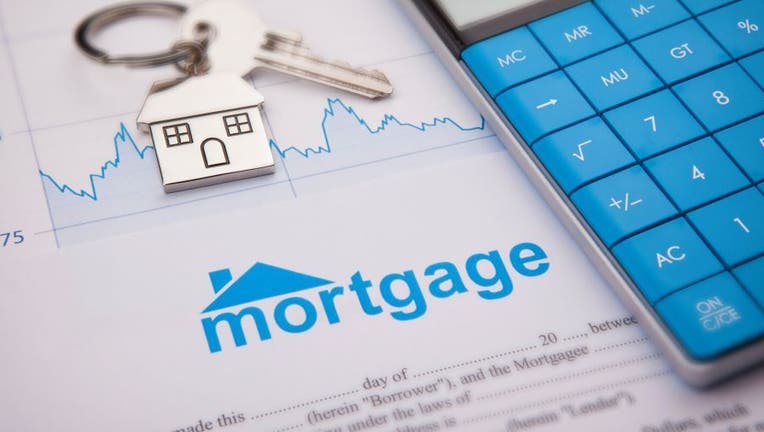5 types of mortgage loans for homebuyers: Which is best for you?

Mortgage loans aren't one-size-fits-all and it's important to know which one fits best.
Buying a home involves more than just finding the right broker to work with and choosing your dream property. You also have to navigate the sometimes tricky process of getting a mortgage. Along with checking your credit score and preparing your down payment, it's also important to compare different mortgage loan options.
1. Conventional mortgage loans
A conventional mortgage loan simply means any loan that conforms to standards set by Fannie Mae or Freddie Mac, or a government agency.
This type of home loan may be what automatically comes to mind when you think of a mortgage.
Pros of conventional mortgage loans:
Private mortgage insurance (PMI) can be canceled after reaching 20 percent equity in the property
Closing costs may be lower compared to other types of loans
Can be used to purchase a first home, second home or investment property
FED’S EMERGENCY RATE CUTS AFFECT MORTGAGES — HERE’S HOW YOU CAN BENEFIT NOW
Cons of conventional mortgage loans:
PMI can make your monthly mortgage payment more expensive
You may need a higher credit score or lower debt-to-income ratio to qualify
A conventional mortgage loan could be good if:
You have a good credit score and at least 20 percent to put down on a home, or you don't mind paying private mortgage insurance with a smaller down payment.
2. Government-backed loan options
Government-backed mortgage loans are federally supported and issued by partner banks. Government-backing offers an insurance policy of sorts to a mortgage lender if you default on the loan for any reason.
MORTGAGE RATES NEAR RECORD LOW - HERE'S WHY IT'S A GOOD IDEA TO REFINANCE
There are three main types of government-backed mortgage loans you might consider:
FHA loans. Designed for first-time and moderate-income buyers, Federal Housing Administration loans allow for a down payment as low as 3.5 percent with a 580 FICO score, or 10 percent down payment with a 500 credit score.
USDA loans. United States Department of Agriculture loans allow buyers in designated rural areas to buy a home with no down payment, if they're income-eligible.
VA loans. Veterans and their families can use VA mortgage loans to buy a home with no down payment and no private mortgage insurance.
Pros of government-backed mortgage loans:
A perfect credit score isn't required for approval
Good for first-time and repeat buyers who want to buy a home with a low down payment
HOW YOUR TAX REFUND CAN IMPROVE YOUR CREDIT
Cons of government-backed mortgage loans:
FHA and USDA loans require private mortgage insurance that can't be canceled
Properties may be subject to stricter inspection and appraisal requirements
A government-backed mortgage could be good if:
You're a first-time or repeat homebuyer who doesn't meet the credit requirements for a conventional mortgage loan, or you want to buy a home with a smaller down payment.
3. Jumbo mortgage loans
Jumbo loans, or nonconforming loans, have borrowing limits that exceed those specified for conventional mortgages.
This type of loan may be more common if you're buying a home in a high cost of living area, where property values are well above the national average. The limits can vary for a jumbo loan by state and municipality.
Pros of jumbo loans:
They can make it possible to purchase a more expensive home
Even though the loan is larger, you can still get low interest rates
GETTING A SECOND MORTGAGE? HERE’S WHAT YOU NEED TO KNOW
Cons of jumbo loans:
Credit score requirements tend to be higher, excluding borrowers with fair or poor credit
Banks and lenders may require a larger down payment compared to a conventional or government-backed loan
A jumbo loan could be good if:
You want to buy a more expensive home and would rather have a single mortgage versus piggybacking multiple mortgage loans.
4. Fixed-rate mortgages
Fixed-rate mortgages are just what they sound like: mortgage loans with a fixed interest rate.
A 30-year fixed-rate mortgage is the most common type, though you may choose a 15-year or 20-year mortgage term instead.
Pros of fixed-rate mortgages:
Monthly payments are predictable, making budgeting easier
You can use a loan calculator to determine exactly how much your mortgage will cost in interest
HOW TO GET PRE-APPROVED FOR A MORTGAGE
Cons of fixed-rate mortgages:
Rates may be higher compared to an adjustable-rate mortgage loan
The only way to lower your rate would be refinancing into a new mortgage
A fixed-rate mortgage could be good if:
You want stable monthly mortgage payments that won't change over time.
5. Adjustable-rate mortgages
Adjustable-rate mortgage loans have an interest rate that's tied to an index or benchmark rate.
During the initial term of the loan, you pay one low rate. Once that period ends, the rate can adjust up or down, based on what's happening with the benchmark rate.
For example, you might have a 5/1 ARM, with a set rate for the first five years. Banks also offer 7/1 and 10/1 adjustable-rate mortgages.
Pros of adjustable-rate mortgages:
You could save money initially with a low interest rate
The savings could continue if your loan's benchmark rate remains low
ADJUSTABLE-RATE MORTGAGES HAVE OBVIOUS ADVANTAGES FOR HOMEOWNERS — HERE'S HOW YOU COULD BENEFIT
Cons of adjustable-rate mortgages:
An ARM could become much more expensive if the rate adjusts upward significantly
You'd need to refinance to a new loan to lock in a fixed rate
An adjustable-rate mortgage could be good if:
You're buying a home that you don't plan to stay in for the long-term or you're confident that you'll be able to refinance to a new loan with a low rate before your mortgage adjusts.

